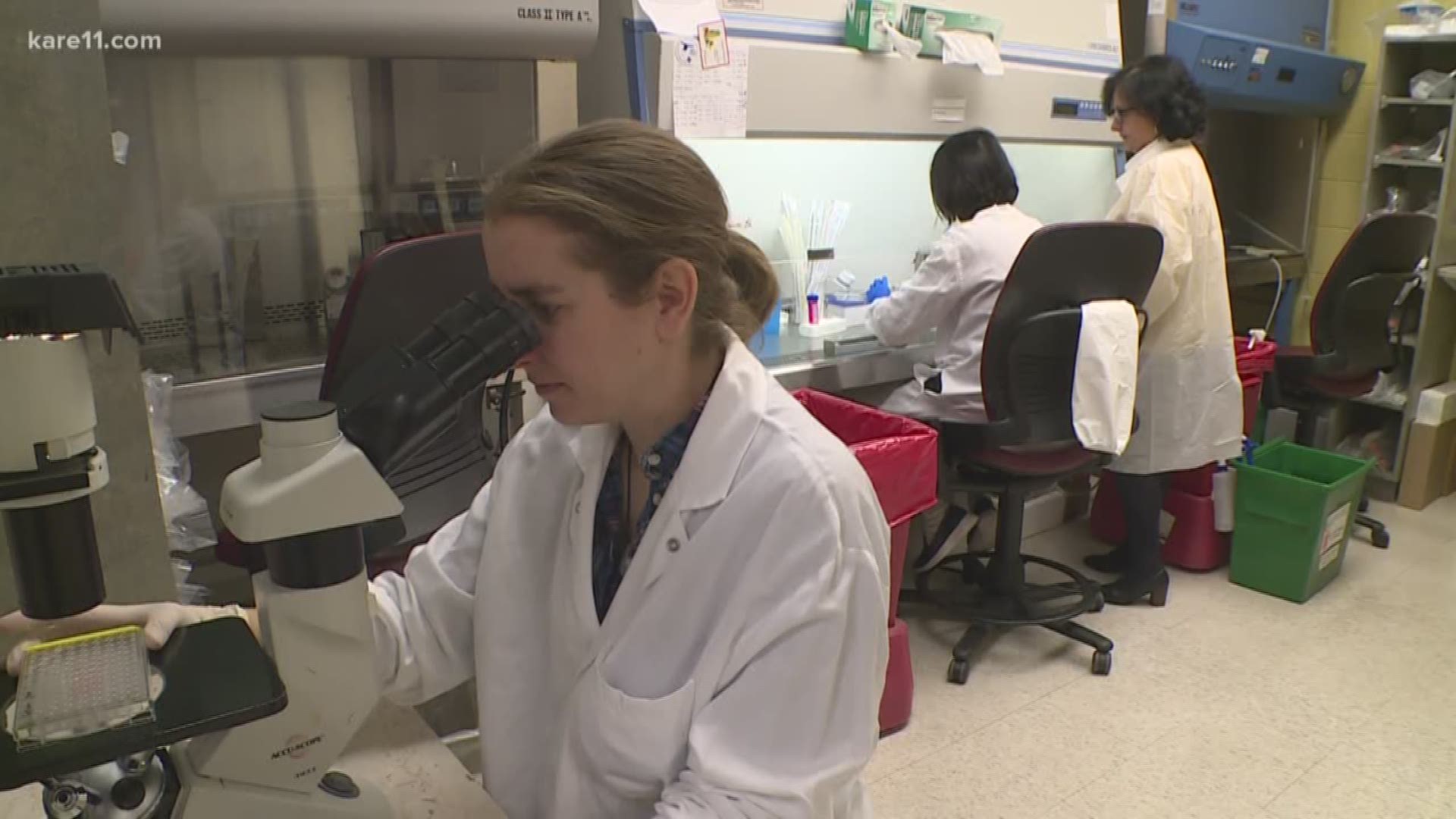ROCHESTER, Minn. - At the Mayo Clinic in Rochester, there's a thrilling thought.
"The ideal would be is if people could live to be 90 or 100 and feel like they're 50 or 60," said Dr. James Kirkland, a geriatrics researcher at Mayo Clinic who heads the Kogod Center on Aging.
Sounds impossible.
Yet Dr. James Kirkland and his Mayo team are working on a solution by targeting particular cells in our bodies. They're called "senescent cells." Everyone has them and they're at the center of our chronic diseases like cancer, dementia, diabetes, and cardiac diseases.
"They (senescent cells) tend to accumulate with increasing age and they are also present at the sites of major chronic diseases," said Dr. Kirkland.
So, they thought, how can we safely get rid of these dysfunctional cells?
Senolytic drugs. Dr. Kirkland's team tested mice and discovered that these drugs allowed the senescent cells to "self-destruct" without damaging other healthy cells. In other words, older mice looked younger and became healthier.
"We gave these drugs and we delayed onset of age-related diseases as a group, not just one disease, but all of them. We also delayed onset of frailty," said Dr. Kirkland.
The results of the study have the Mayo team genuinely excited. The drugs are now being tested in human clinical trials and if it all continues to progress, this could be life-changing in so many ways.
"We want to figure out a way where we can go at the root cause of all of these conditions and try to delay them as a group so that the period of health span, that is the period of people's lives when they're independent, living at home, free of pain, free of disability, can be extended," said Dr. Kirkland.
But, then, Dr. Kirkland wonders how this potential discovery could help in other areas.
"Well, what about organ transplantation? What if you're transplanting kidneys from 70-year-olds into 20-year-olds? Should the organ be cleared of senescent cells before transplantation? So, there are all kinds of strange things or things that we hadn't thought of before that we're suddenly beginning to think of now," said Dr. Kirkland.

